Event Summary | What’s Next on Accounting for the Future? | Building Bridges 2025
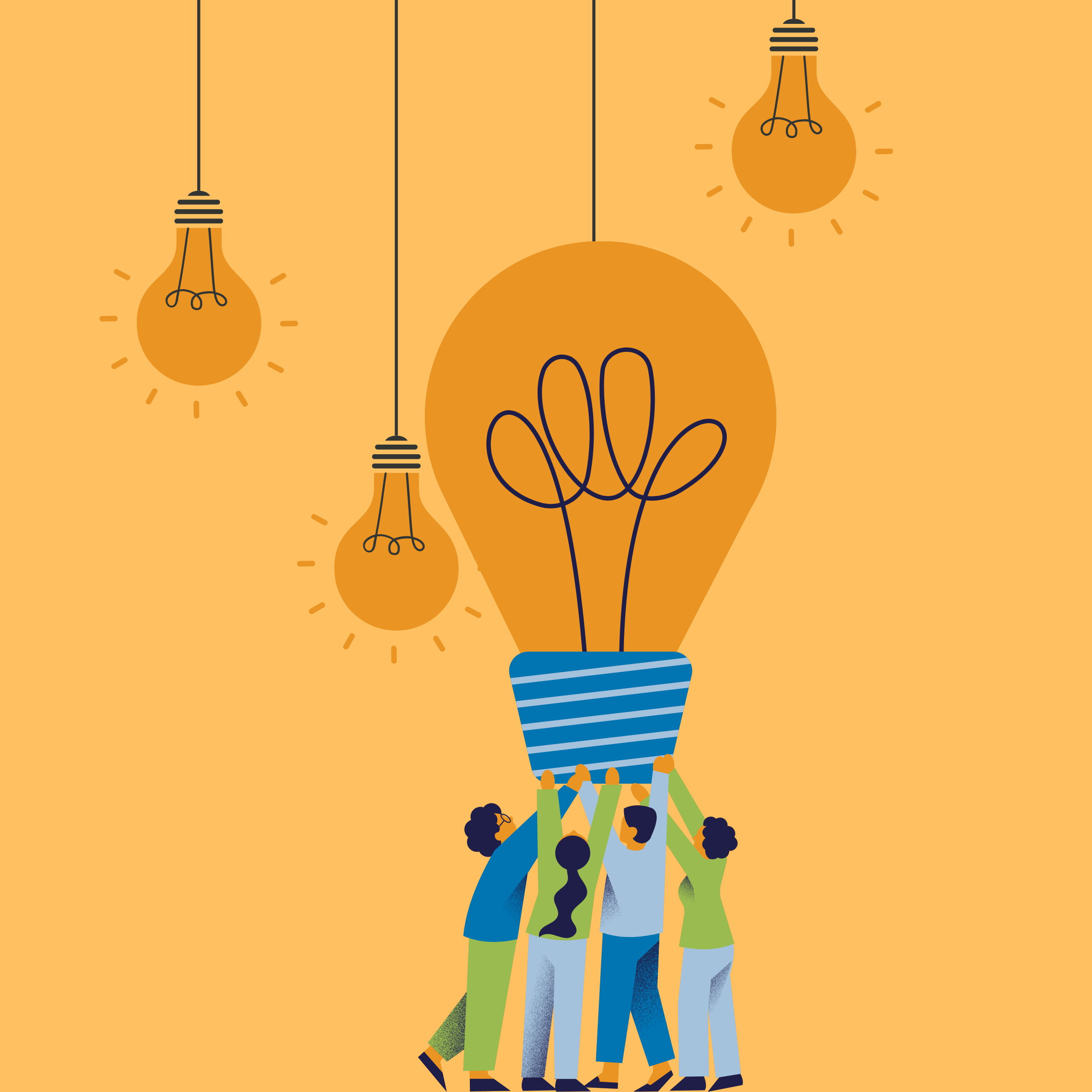
Ensuring the well-being of future generations is one of the defining challenges of our time. Intergenerational equity-the principle that today’s decisions should account for the needs and rights of those who will come after us-has never been more urgent at this time.
At this year’s Building Bridges sustainable finance conference, the Beyond Lab held an intergenerational dialogue on 30 September 2025, titled “What’s Next on Accounting for the Future?” together with partners at Thinking Ahead on Societal Change Platform (at the Geneva Graduate Institute), World Economic Forum, Permanent Mission of Switzerland to the UN in Geneva, and the International Institute for Sustainable Development.
The event gathered leaders, Member State representatives, young changemakers, and policy and financial experts to explore how intergenerational equity and fairness can be embedded into governance, decision-making, and financial investments. It also showcased various policy initiatives, innovative tools and solutions to supporting more sustainable, inclusive, and responsive decision-making and financial governance that truly accounts for now and the future.
Key Takeaways
Event summary
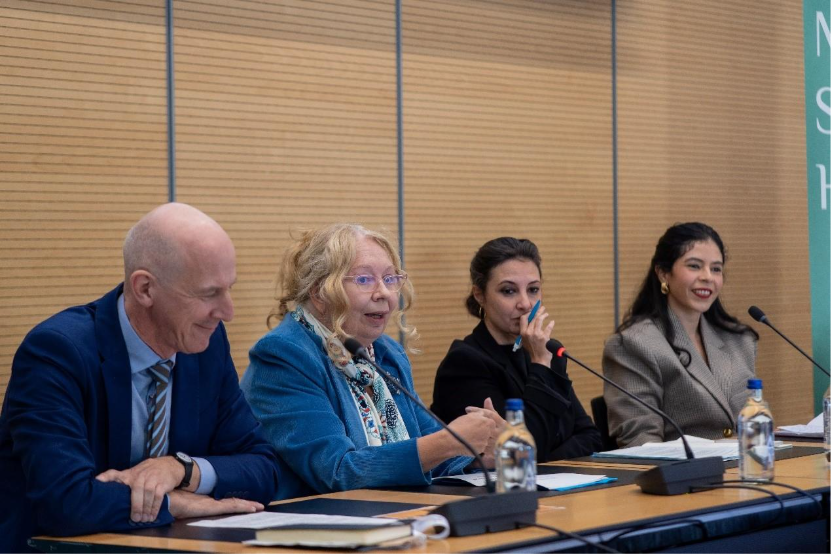
Tatiana Valovaya, Director-General of the United Nations Office at Geneva, opened the session by reflecting on SDG progress over the past decade, noting only 18 percent of the goals are on track to being achieved by 2030. She stressed that the 2030 Agenda must not be the end point but rather a stepping-stone toward a broader vision of sustainable development beyond 2030. Highlighting the importance of mindset change, she called for intergenerational thinking in intergovernmental processes, such as the Youth Moving Beyond GDP initiative, emphasizing the active role of young people in shaping what’s to come.
Özge Aydoğan, Director of the Beyond Lab, underscored the mission of the Beyond Lab as an experimental and inclusive platform for multilateral collaboration on intergenerational thinking. She urged a paradigm shift from short-termism to long-term regeneration, from extractive to restorative economic models, and called for forward-looking innovations, tools, policies and decision-making that create tangible value for people and planet.
Switzerland’s Deputy Permanent Representative to the United Nations Office at Geneva, Ambassador Julien Thöni, reiterated Switzerland’s commitment to supporting Beyond Lab initiatives and to shaping new visions for the future. He invoked the metaphor of planting trees for future generations and emphasized multilateralism as the most powerful tool for addressing today’s global challenges. He also highlighted Geneva’s role as a hub for innovation, dialogue, and sustainability, stressing the need to involve young people in developing solutions.
Panama’s Deputy Permanent Representative to the WTO, Sally Bardayán Rivera, presented Panama’s efforts as one of the few carbon-negative countries in the world, while also acknowledging the vulnerabilities posed by the climate crisis, such as forced migration. She outlined Panama’s Natural Fund as a tool to safeguard biodiversity and ensure intergenerational equity, stressing the importance of multilateral collaboration to preserve global commons such as oceans.
Beyond Generations: Futures-Thinking and Foresight
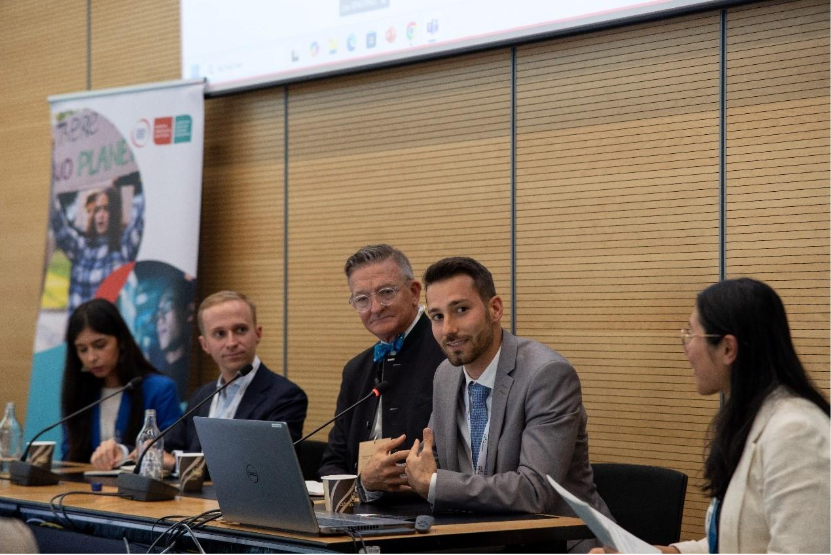
The first panel discussion brought together pioneers and young changemakers who are transforming how public and private institutions are shifting mindsets with foresight and futures-thinking, developing the capacity to understand how today's decisions create tomorrow's baseline conditions.
Chris Luebkeman, Professor at ETH Zurich, spoke about the intersection of foresight and systemic thinking, emphasizing the importance of connecting technological, social, economic, and legal drivers of change. Drawing on his background in geology, engineering and architecture, he described his career as one of “bridge building,” linking the past, present, and future to help decision-makers prepare for what lies ahead and calling for “no-regret actions” that future generations will thank us for.
Shehrbano Jamali, Associate Manager at DAI and a WEF Future 50 Leader, underscored the importance of also recognizing that intergenerational equity is about incorporating and reflecting the diversity of future generations and communities, especially in the global south. She called for empathy and inclusion in futures-thinking, and the need to ground foresight in local contexts and enabling their co-creation of equitable futures so that sustainable solutions don't reproduce existing inequalities for the communities they're meant to serve.
Markus Kirchschlager, Managing Director at Pantarhei Advisors and a WEF Future 50 Leader, emphasized bridging short-term indicators with long-term value creation. He highlighted the need to embed foresight in organizational leadership, foster participatory innovation, and build intergenerational ecosystems where incentives and institutional cultures align with sustainable outcomes.
Rafia Al-Jassim, Chief Operating Officer of AlgaQ and Specialist at Invest Qatar, as well as a WEF Future 50 Leader, further stressed the importance of innovation in guiding futures-thinking, sharing her experience in leading a biotech startup that uses algae-powered reactors for carbon capture. From her perspective, she noted that innovation is key to intergenerational equity and thereby ensuring that today's progress strengthens rather than compromises the potential of tomorrow. Importantly, she added the importance of ensuring that innovations and technologies are used for purposes that advance sustainability rather than cause harm.
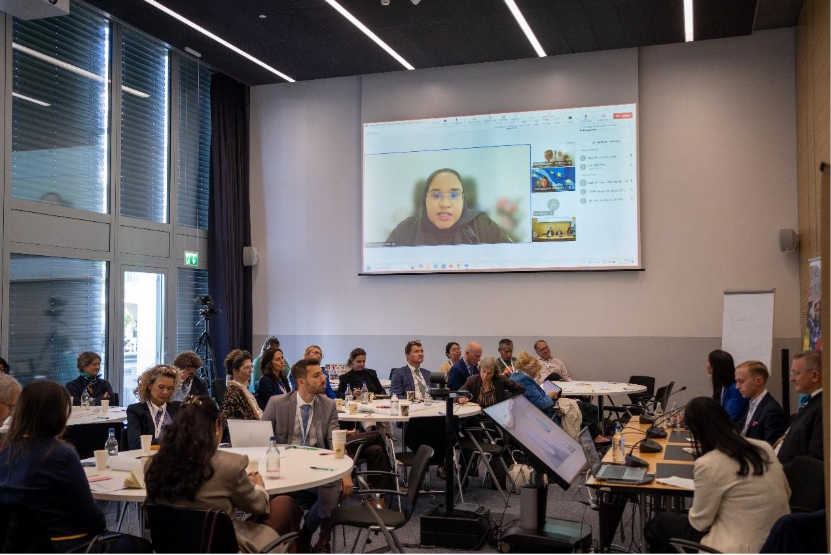
Intergenerational Accountability: Moving from the what to the how
Moving from the ‘what’ and ‘why’ to the ‘how’, the second panel brought forward concrete examples of how intergenerational accountability is being operationalized and institutionalized through concrete mechanisms, frameworks, and innovations across the public and private sectors.
Mare de Wit, Future Ambassador for Water and Climate Adaptation of the Netherlands, presented her country’s pioneering approach to intergenerational governance and policy development. In particular, the "Future at the Table" initiative (see resource link below), spearheaded by de Wit, is a practical guide for policy and decision-makers to integrate future perspectives, including long-term and intergenerational impacts in policy and decision-making processes. This includes recognizing future generations as key stakeholders, representing their interests, and integrating their input into decision-making. This also requires key actors, or ‘Future Friends’, to mobilize and drive change within organizations and support implementation. She underscored that accounting for the future means ensuring unreasonable burdens are not placed on the next generation.
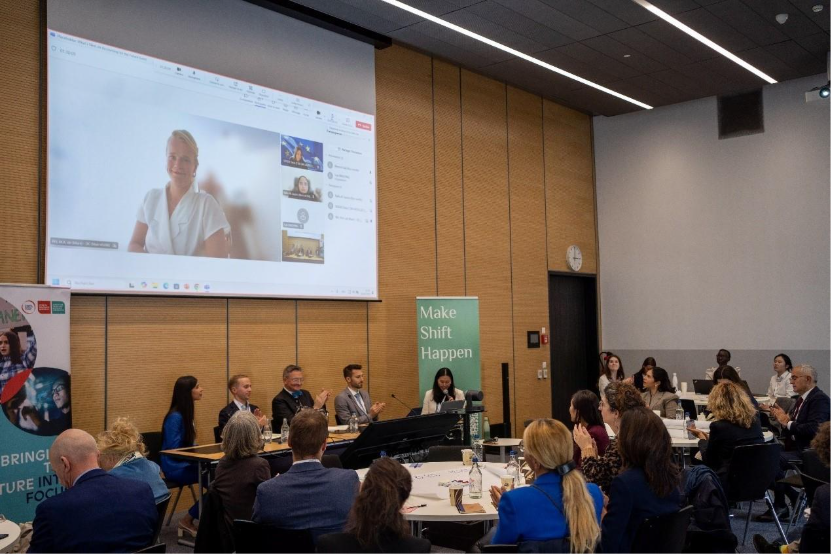
Deša Srsen, a member of Commissioner Glenn Micallef's Cabinet dedicated to Intergenerational Fairness, Youth, Culture and Sport, further spoke on the EU’s development of its first comprehensive intergenerational fairness strategy, stressing the need to move beyond short-term policymaking. She outlined work to develop an “Index of Intergenerational Fairness” as a tangible tool and moral compass to measure intergenerational impact of national policy. The EU’s work on intergenerational fairness reflects a clear understanding that ensuring intergenerational accountability requires strong institutional capacity at the highest levels of governance, as well as the integration of a ‘generational lens’ across national and regional policy frameworks to advance economic, social, and environmental wellbeing.
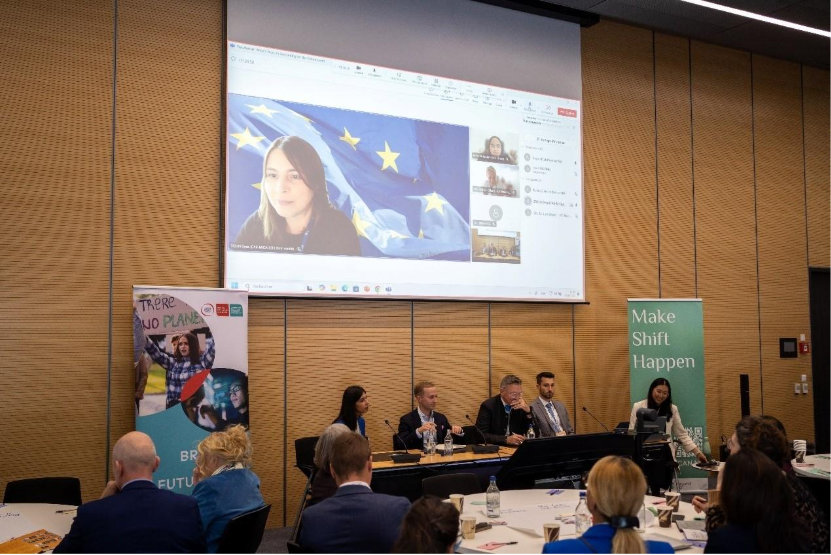
Valentin Dal Zotto, representing the NextGen Sustainability Forum at Pictet, emphasized the importance of the private sector in accounting for the future, noting that financial institutions must integrate next-generation perspectives into their strategies. He encouraged openness from senior leaders to create spaces for young professionals to drive innovative solutions. In particular, the NextGen Sustainability Forum at Pictet enables young professionals to turn their passion for sustainability into action, including by driving impactful projects that support business innovation from the bottom up.
At the end of the day, the private sector plays a critical role in developing stewardship models that recognize finance and investment decisions as intergenerational commitments, and that business and investment choices remain critical tools for driving long-term sustainability and systemic change.
Innovative Solutions: Minimizing Debt to the Future
The final session of the event featured an interactive demonstration of the Beyond Lab’s Future Balance Tool. This AI-powered policy planning and accountability tool, currently in a prototype phase, is designed to support decision-makers in unpacking how today’s choices create or reduce “debt” for future generations, and in better addressing the long-term impacts and spillover effects of their policies and investments choices, over time and across policy areas.
Following the presentation of the tool by our partners from the TASC Platform, groups were formed whereby participants explored and tested the functionalities of the Futures Balance interface on concrete policy case studies. Throughout the group discussions, participants examined the ability of the tool to provide a snapshot of intergenerational spillovers, and provided feedback from a technological, usability, and methodological perspective. This included how harnessing strategic foresight and new technologies like AI could be used to enhance decision-making, how qualitative and quantitative intergenerational impact assessments could strengthen policy relevance, and how to better assess intergenerational equity of public policies.
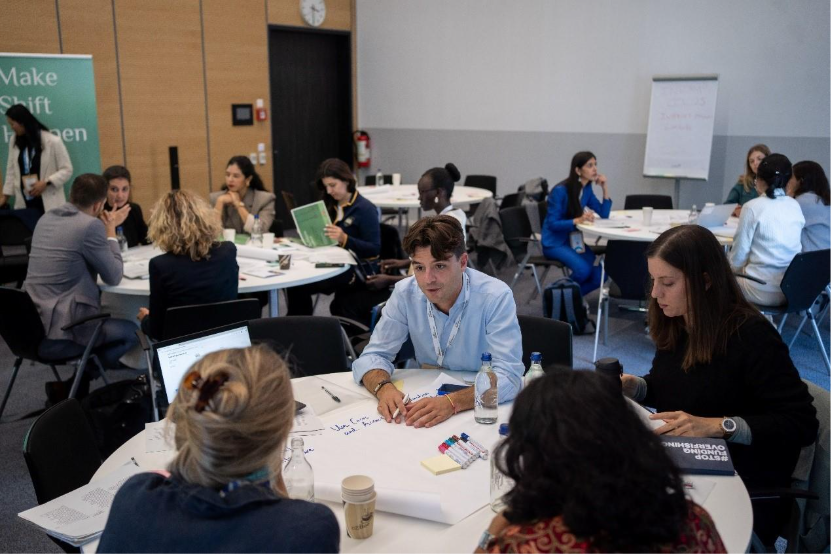
The exercise reaffirmed that, while such innovative tools are essential for intergenerational accountability and could provide support to decision-makers in thinking long-term, they are not meant to substitute the agency of decision-making bodies themselves. Moreover, the willingness of stakeholders to use such tools, their scalability and adaptability potential, as well as the reliability and robustness of the information and data sources emerged as key factors to consider when applying these tools and methodologies in long-term planning and policy making. The Beyond Lab will also continue working with its partners and various stakeholders in the ongoing development of its Futures Balance tool.
Building Bridges across Generations
The session concluded with a reminder that sustainable development is not only about meeting targets but also about changing systems. It requires bridging short-term pressures with long-term visions, aligning incentives with long-term value creation, and walking the talk on intergenerational accountability. Specifically, this requires institutional innovation, including new roles, new processes, new frameworks that systematically account for future generations in governance and decision-making.
Whether it’s a 30-year renewable energy investment shaping energy systems for the next generation, or pricing climate risks that will unfold over the coming years and decades, it’s about making intergenerational commitments, and recognizing the environmental, social, and economic impacts of today’s decisions, so that future generations not only face less burden and debt, but also inherit greater value and assets.
Sustainable finance and policy must create real social and environmental value, not only for today, but for generations to come. As reflected by one participant, “systems are not set in stone, we all have the power to change them, and it begins with engaging across generations.”